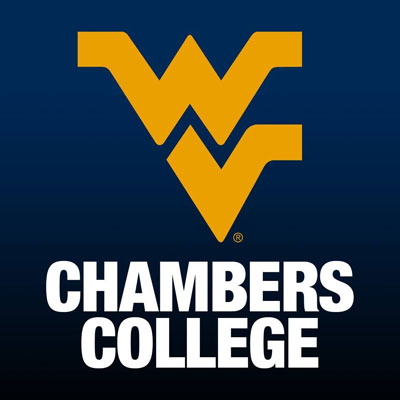Only about five months removed from earning his Ph.D. from Virginia Tech, Dr. Stephane Collignon has hit the ground running with teaching and research at the West Virginia University College of Business and Economics.
A native of France, the assistant professor of management information systems and his wife Olga Bruyaka, an assistant professor of management at B&E, and their two sons have found their home in Morgantown.
Read his Q&A below to learn more about Dr. Collignon’s journey in private industry, earning his Ph.D. and finding a love for the technological world.
1. How have you enjoyed your time at WVU and B&E so far?
Great. I’ve had a lot of teaching to do. In the first semesters, you have to find your way, but I enjoyed it. Both Olga and I have encountered an ambience in B&E that doesn’t exist in other places we’ve seen. We’ve met friendly people and found departments we are happy with. The MIS department is tremendous. It is eight faculty, so it’s really human-sized. All of them interesting and friendly. It’s also a very dynamic environment. There is a lot going on – trying to do new things, trying to launch new projects.
2. Your two main current research interests are transportation procurement issues on e-marketplaces and the truck transportation industry. Why do these topics interest you?
I had experience with those marketplaces in industry in France, and I saw a lot of inefficiencies, so I decided to study those marketplaces for my dissertation. I wanted to study some of the mechanisms, and I realized while doing my lit review, we were lacking a lot of the fundamentals for the studies. There were plenty of gaps in the literature, and it was interesting to study that because the truck transportation industry is the second industry in the United States in terms of revenues. A lot of those contracts go through electronic marketplaces now, and it was understudied. So, my dissertation moved from studying the inefficiencies of the mechanism to actually identifying what the marketplaces are because there was no literature on it.
3. How did you become interested in management information systems and data analytics?
It was a little bit of luck. I was a product of French business school, and I studied entrepreneurship, and I was always interested in launching my own business. Then, I had an opportunity to come to the United States to go to Duquesne University in Pittsburgh for graduate school in 2001. After 9/11, it was difficult for foreign people to find jobs in the United States, so I came back to France, where there was a crisis as well. So, I tried to find a job wherever I could, and I found a job in logistics. The logistics company employed me to implement a new ERP [enterprise resource planning] system and to train people on that system and all other systems.
From there, I discovered a world I liked very much, especially the transportation part. I actually moved from warehouse management to transportation management. My entry door was my knowledge of the management information systems they were using – the optimization software for routing trucks, assigning trucks to carriers and everything that goes with traffic management. I started becoming specialized in that, and when you’re specialized your next move is related to it.
4. After working for so long, why did you decide to earn your Ph.D.?
I was really interested in going into academia still focusing on transportation management, but you are restricted in what you can do. The projects have to be accepted by the companies. There are budget problems. You can be dispositioned in your research because it is the property of the company.
I was interested in going into research in academia, where you are more independent. But I do miss the action of the industry. You had to deal with people directly, and you had some stress related to it and a bigger challenge because you were impacting the way of life of some people. It was very challenging, but also motivating to deal with things that become a fact immediately.
5. How are you working to bridge the disconnect between the research of academia and the action of industry?
The number one thing I would like to do next semester is get in touch with truck transportation companies around the Morgantown and surrounding areas to interview them for a project I have in mind, and to hopefully create a relationship with them to see if they have needs to optimize the way they work. I did it with a professor at Virginia Tech who worked closely with people in industry to discover what help they need. I would like very much to do that because I hope it would turn into people in the industry thinking that the research I do could be useful to them.

